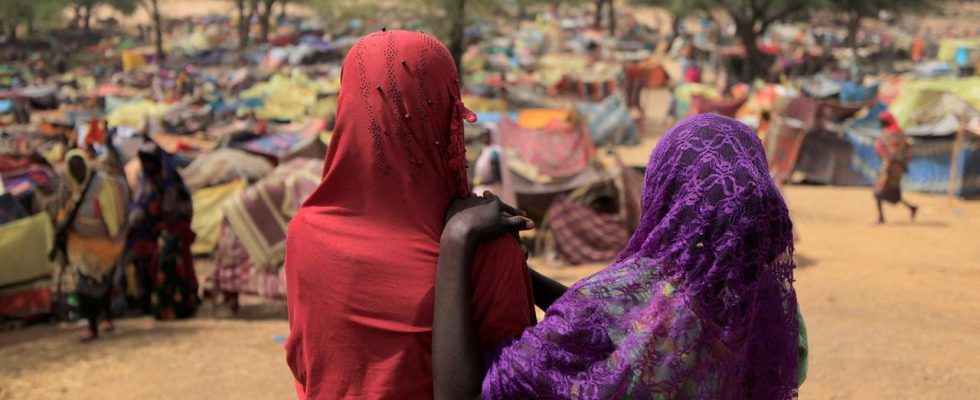Looting and rape, a lack of food and nationwide fighting: three months after the start of the escalation of violence in Sudan, there is no end in sight to the power struggle. The state seems to be finished.
The news that has come out of Sudan over the past few days and weeks is frightening: looting and rapes by militias, and a shortage of food and medicine. A mass grave containing almost 90 bodies was recently discovered in the Darfur region of Sudan.
For a few days and weeks, the fighting in Sudan was the dominant theme – but after the evacuation of foreign nationals was completed, attention seemed to ebb bit by bit. The fighting against it continues three months later – an end does not seem to be in sight at the moment.
While fighting was concentrated in the capital Khartoum three months ago, the violence has now spread across the country. The situation in Sudan, which is more than five times the size of Germany, is difficult to assess. Several negotiated ceasefire agreements have already failed.
Institutions can no longer fulfill tasks
The Sudanese state as such seems to have come to an end: “The state in Sudan as we used to know it no longer exists. All state institutions can no longer fulfill their tasks,” says Amani al-Tawil, an expert on the Egyptian al-Ahram Center for Strategic Studies.
On one side of the power struggle in Sudan is General Abdel Fattah al-Burhan, who heads the military, and on the other his former deputy – Mohamed Hamdan Daglo, nicknamed “Hemeti”, who led the so-called “Rapid Support Forces” (RSF) commands. Hope dies last, but the situation is “really very complicated” because the actors involved are not interested in ending the conflict, explains al-Tawil.
The military and paramilitaries of the RSF staged a joint coup in Sudan about a year and a half ago, but promised to return control to a civilian government. An important step on the way to an interim government was the integration of the “Rapid Support Forces” into the military – but that failed.
The power poker between the former Allied generals escalated into an outbreak of violence in April. With fighter planes, tanks and heavy artillery, the troops of al-Burhan and Hemeti fight each other in densely populated residential areas. Even three months after the fighting began, there is no one who seems to have the military upper hand, observers say.
Locals suffer from the fighting
In any case, there is one clear loser: millions of Sudanese are suffering from the fighting. According to current reports, around 3,000 people have now died in the fighting. Experts suspect, however, that the number of deaths could be significantly higher. Many regions are simply not accessible to observers.
The 62-year-old Sudanese Entsar al-Aakly recently fled from the capital Khartoum to Egypt and stayed with relatives here. She reports: “The situation is very bad. When I fled, the war was in full swing. There were many dead and injured. Many houses were occupied and looted by the militias. When we left, they destroyed everything in my house . Even the bookcase – I don’t understand what the books have done to them.”
Like al-Aakly, around three million people have already been displaced by the fighting, reports the United Nations Office for the Coordination of Humanitarian Affairs “OCHA”. Those who can afford it are trying to seek refuge in neighboring countries – some 700,000 are sheltered in Chad, Egypt or South Sudan.
experts fear destabilization of the region
According to the United Nations Office for the Coordination of Humanitarian Affairs, it is becoming increasingly difficult to provide aid to the people of Sudan. The work of assistants is very dangerous because of the fighting. Warehouses with aid supplies are repeatedly looted and employees of non-governmental organizations can hardly get visas to enter the country.
“The war must end. I don’t want to give up hope that the war will end. For our country and the people, the war must end as soon as possible,” emphasizes al-Aakly.
The United Nations warns that the conflict has now taken on an ethnic dimension – around 200 ethnic groups live together in Sudan, some under difficult conditions. Serious human rights violations have repeatedly occurred in the past, particularly in the Darfur region, which is plagued by hunger and drought.
Should the conflict escalate into a full-scale civil war, the United Nations fears a destabilization of the entire region with unforeseeable consequences.

